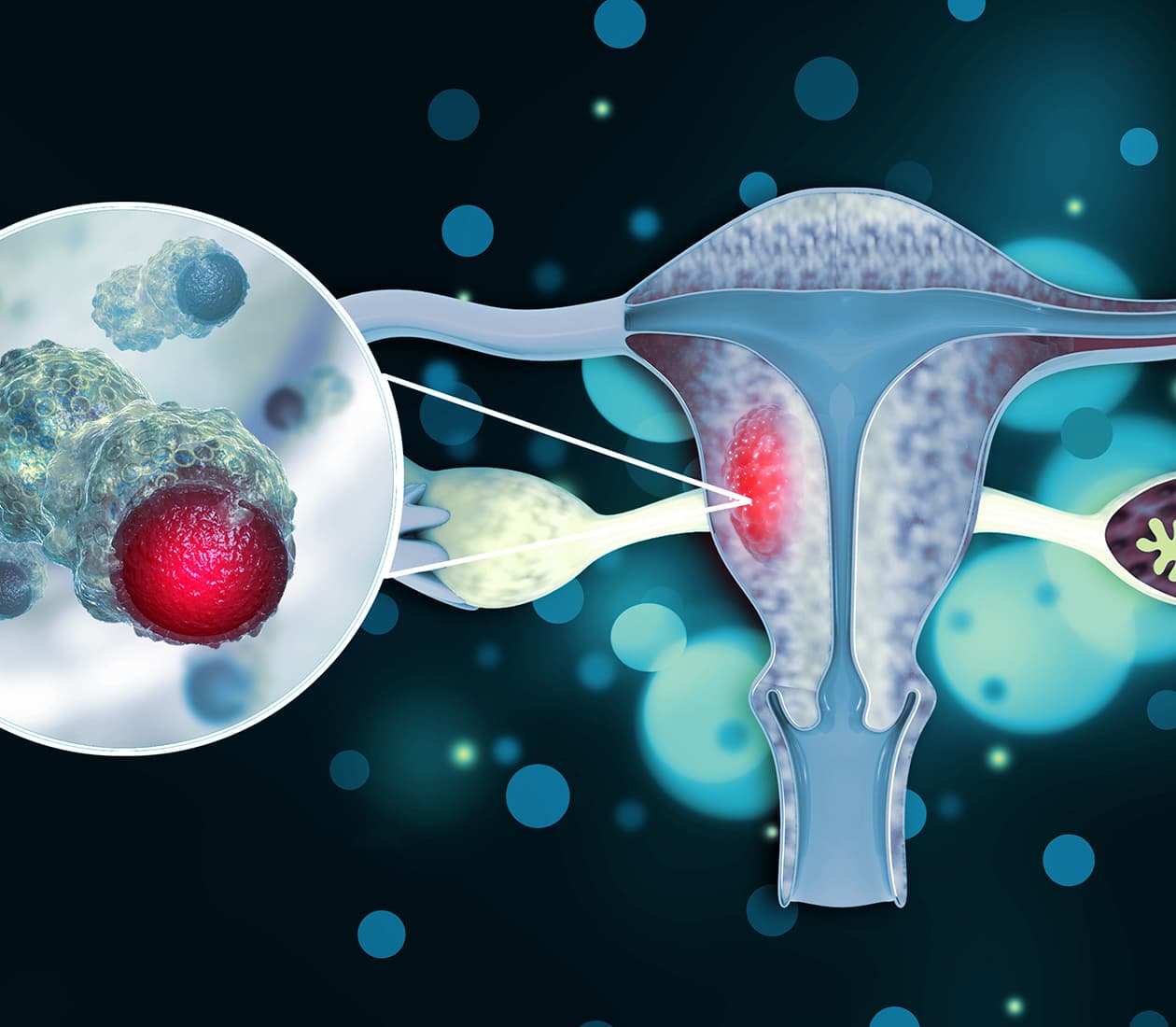
The Cervical Cancer Program at Cleveland Clinic Abu Dhabi provides care for women during what can be a very difficult time. Cervical cancer is the fourth most common cancer among women globally and the fourth leading cause of death. It is a highly preventable cancer, with early detection through routine pap smears and vaccination against the HPV virus allowing for successful treatment and prevention in most cases.
We offer a truly collaborative approach to cancer care, close to home. We use the very latest diagnostic and treatment techniques, supported by highly specialized and compassionate care; an important differentiating factor when treating cervical cancer and an essential part of improving outcomes for patients.

Our multidisciplinary team is led by one of the region’s only female Gynecologic Oncologists, Dr. Stephanie Ricci. She is a specialist in the treatment of female cancers, and one of only a handful in the UAE. Treatment for cervical cancer by a gynecologic oncologist is extremely important as they have the dedicated training, specialist experience and technical skills needed to diagnose and treat the cancer as effectively as possible. Dr. Ricci qualified is a fellowship trained, American board-certified and spent 6 years at Cleveland Clinic in the US. She has dedicated her career to helping women affected by cancer.
Our multidisciplinary approach brings together a team of experts to provide coordinated and exceptional patient care to those diagnosed with gynecologic cancers. The team meets regularly as a multidisciplinary tumor board to discuss each patient and ensure the best treatment options are considered for each individual.

The cervix is the lower part of the uterus, or womb, that connects to the vagina. Cervical cancer starts on the surface of the cervix, and there are two types:
Non-HPV related cervical cancers are rare, approximately less than 1% of all cases.
The Cervical Cancer Program at Cleveland Clinic Abu Dhabi treats women diagnosed with cervical cancer as well as precancerous conditions of the cervix, including cervical intraepithelial neoplasia (CIN).
Our team of specialists are highly trained in a variety of diagnostic techniques and state-of-the-art therapeutic treatments for cervical cancers and precancerous conditions.

The first symptoms of cervical cancer might include:
When the cancer has spread to other tissues, symptoms might include:
If you experience any of these symptoms for more than 2 weeks, always see your doctor.
Causes & Risk Factors of Cervical Cancer
Many cases of cervical cancer are linked to known risk factors. Some of these can be avoided, while others cannot. Risk factors include:
Irregular screening: If regular pap or smear tests are not taken, there is an increased risk of cervical cancer.

We offer a range of techniques that allow for the quick and accurate diagnosis of conditions that affect the cervix. A pelvic examination and Pap smear together can detect most cases of cervical cancer, but to confirm a diagnosis, further examination and tissue samples will be required. Diagnostic tests might include:
We offer a range of advanced and minimally invasive treatments for cervical cancer, all of which are overseen by our gynecologic oncologist. The treatment given will depend on how advanced the cancer is, the patient’s age, and its exact location. Treatment will usually include radiation therapy, surgery or chemotherapy, or a combination of these.

Having regular Pap smears and gynecological examinations is the most important thing you can do to prevent cervical cancer. The Department of Health – Abu Dhabi recommends that all women aged 25 to 29 have a Pap smear every 3 years, and women aged 30 to 65 have a pap smear every 5 years. Women over 30 should also receive an HPV test. Testing should be more frequent if there is a history of abnormal pap smears or if HPV is present.
A vaccination is approved for use in females aged 9 to 45, to offer protection against cervical cancer, by building immunity against HPV.
Managing lifestyle risk factors, such as leading a healthy lifestyle and not smoking, can also reduce the risk of cervical cancer.

Our multidisciplinary team of caregivers includes:

Speak with our Contact Center for assistance
Request an Appointment 800 8 2223 International Patients